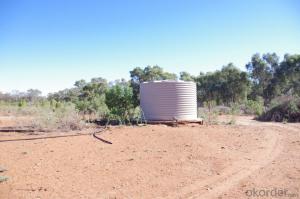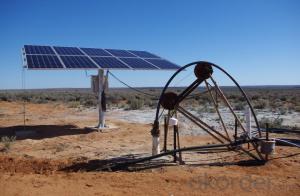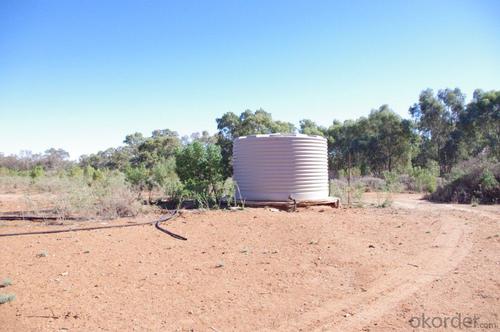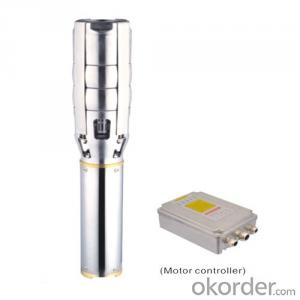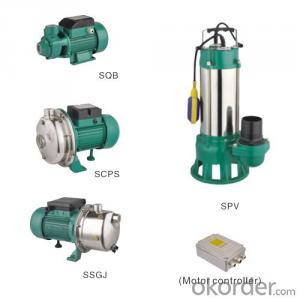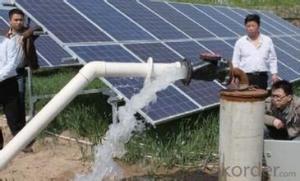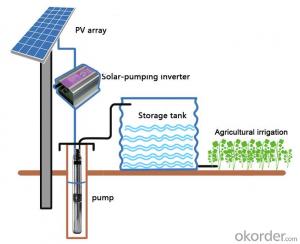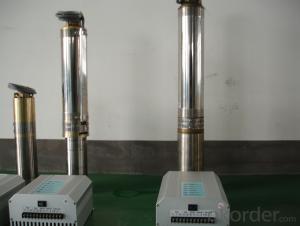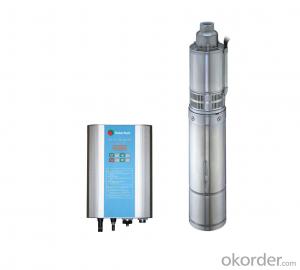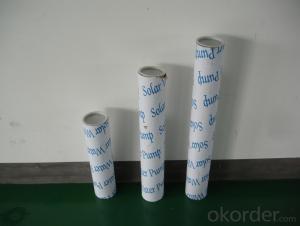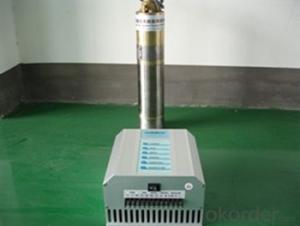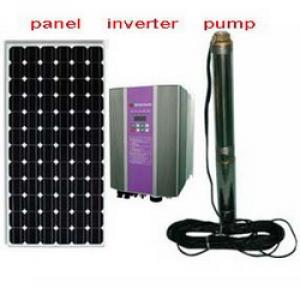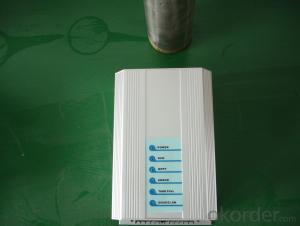DC Solar Drinking Water Pump with Solar Pump and Controller
- Loading Port:
- Shanghai
- Payment Terms:
- TT OR LC
- Min Order Qty:
- -
- Supply Capability:
- 300 set/month
OKorder Service Pledge
Quality Product, Order Online Tracking, Timely Delivery
OKorder Financial Service
Credit Rating, Credit Services, Credit Purchasing
You Might Also Like
how is the rotor made:
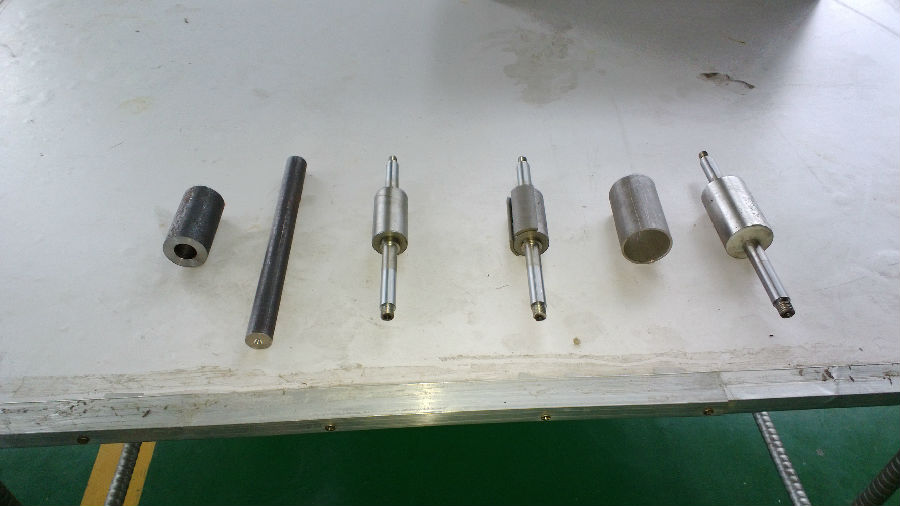
how is the motor made:
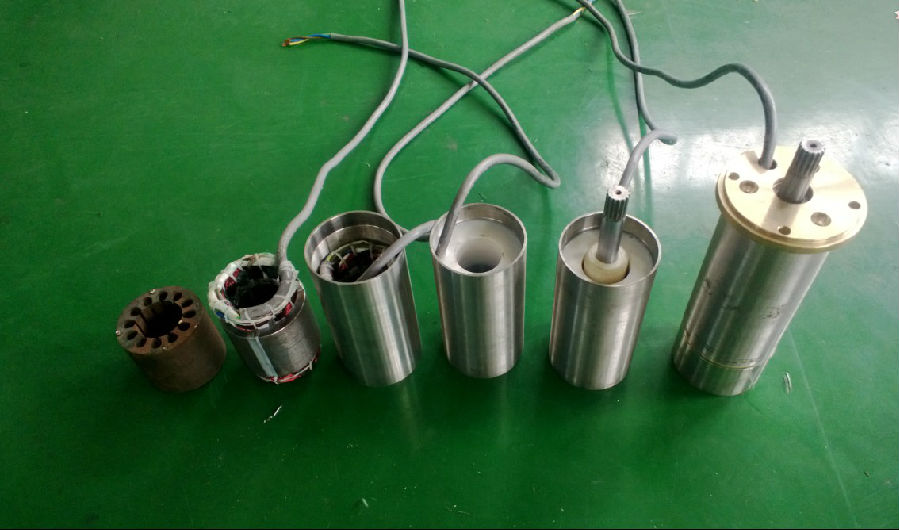
the pump :
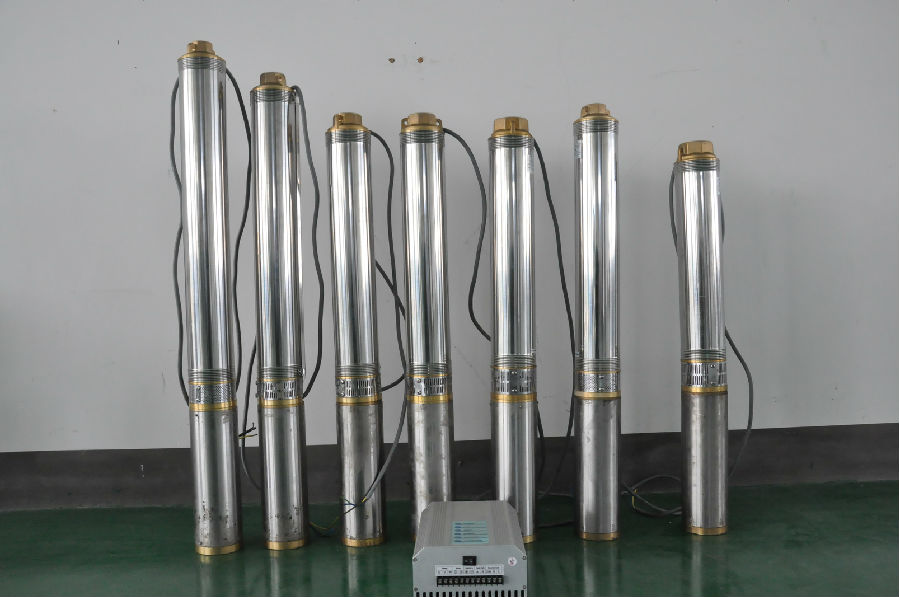
controller terminal connection:
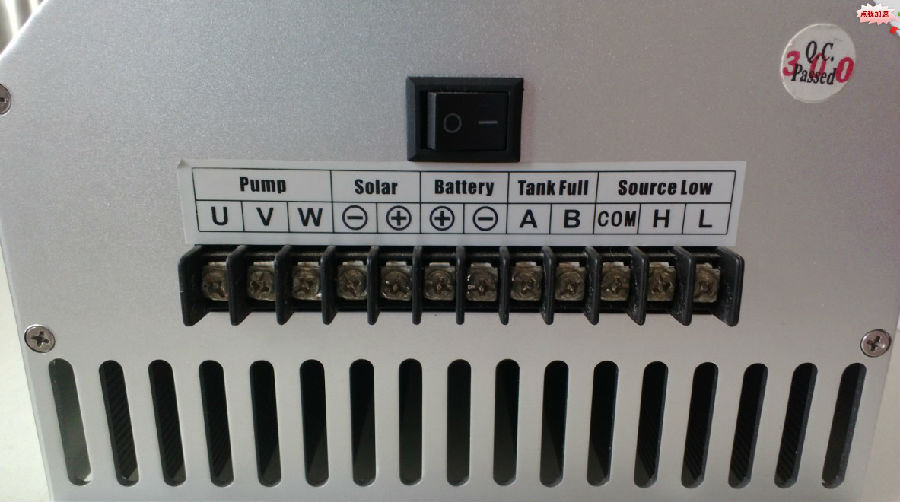
The permanent magnet:

the impeller:
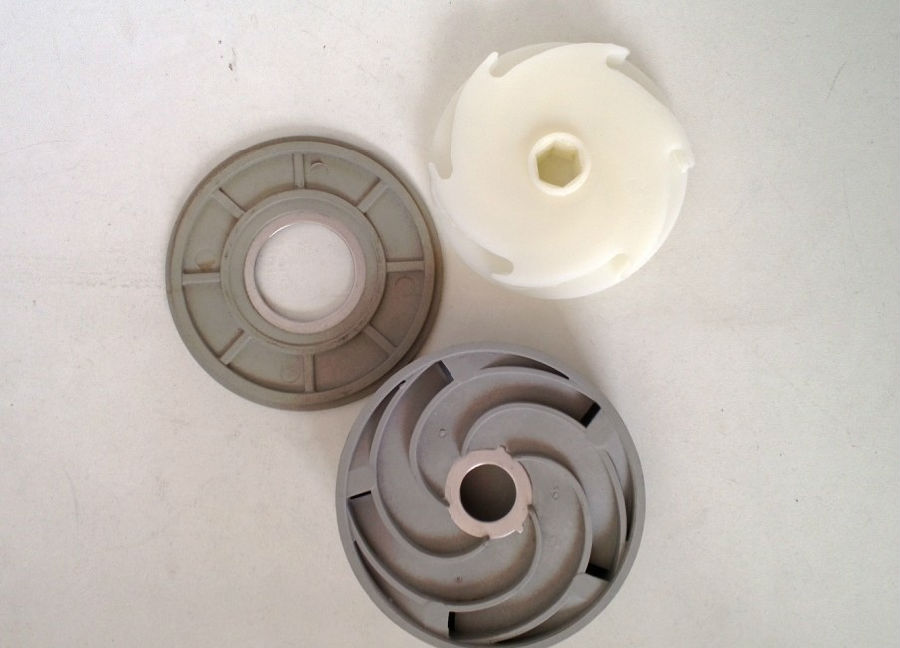
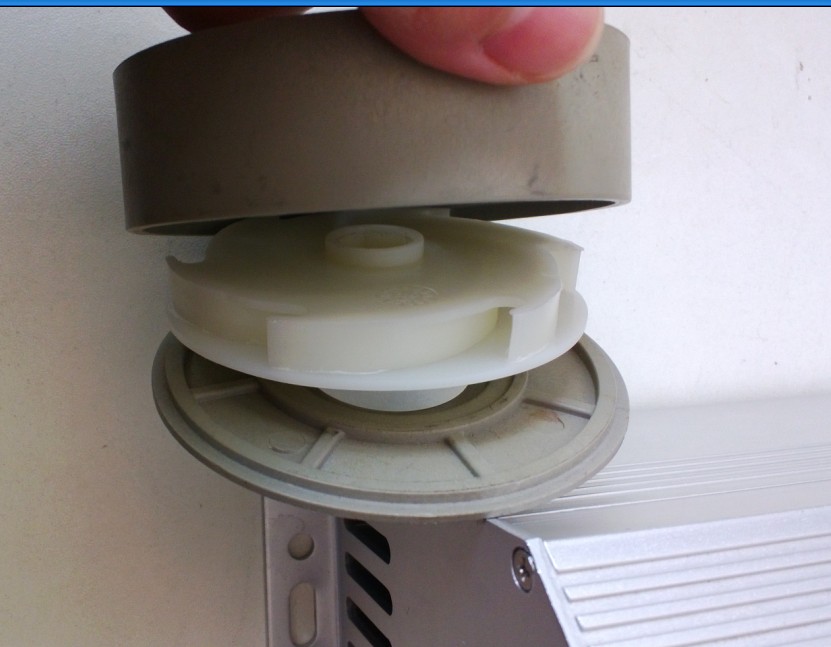
controller box:
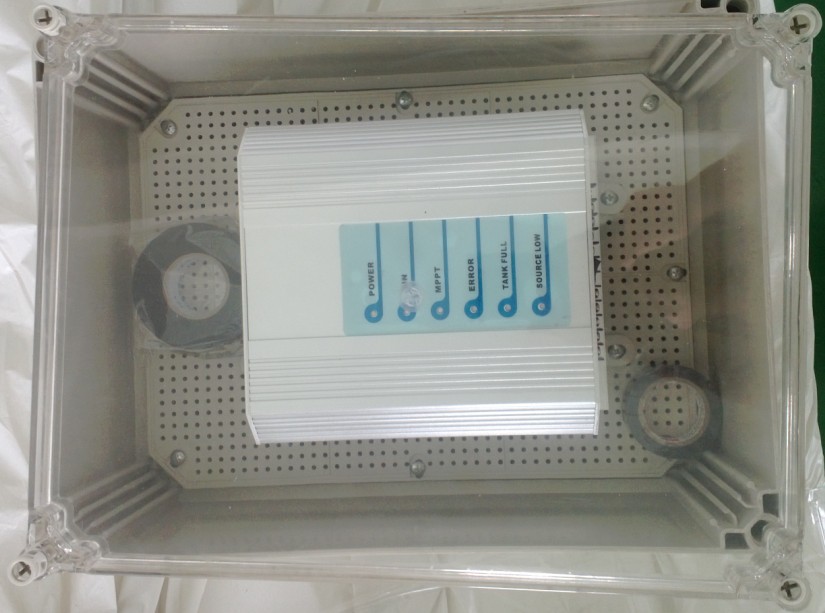
the senors:
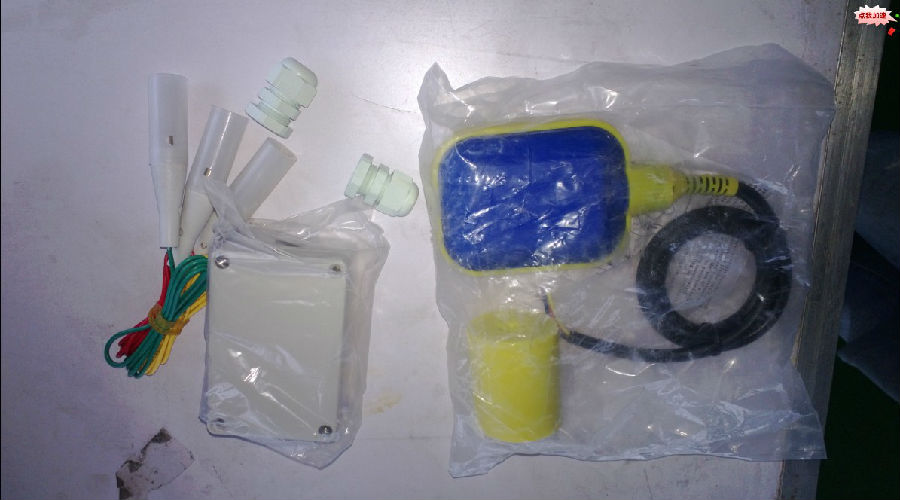
the test:
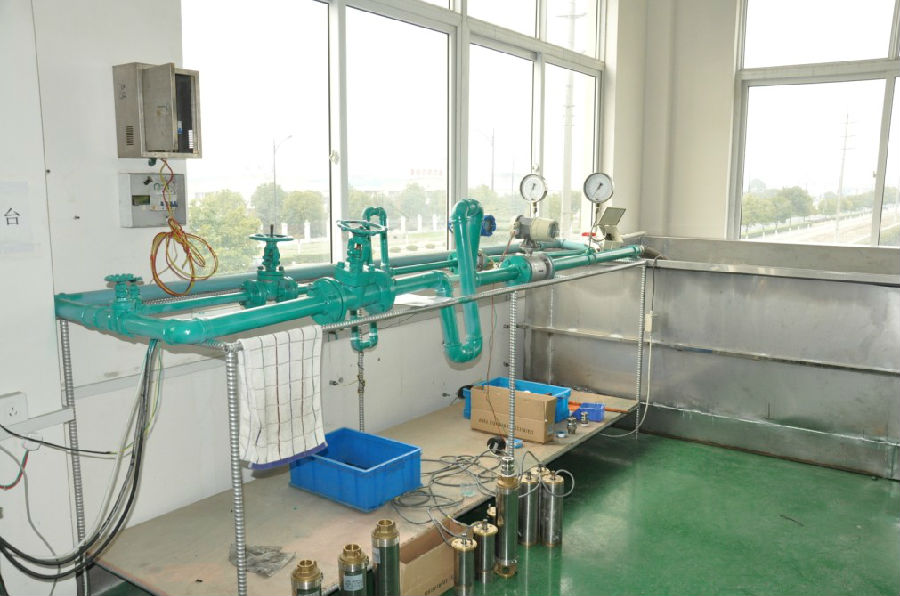
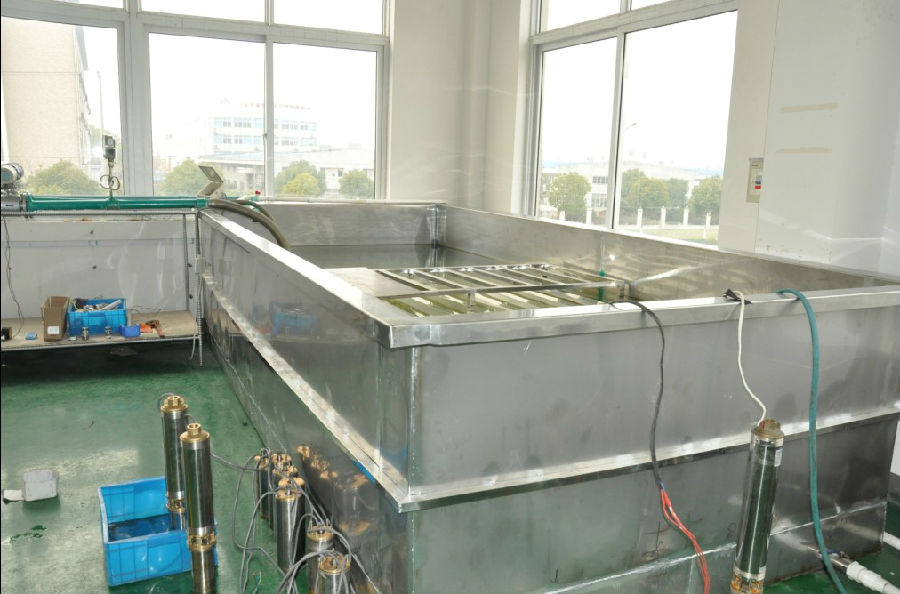
the application:
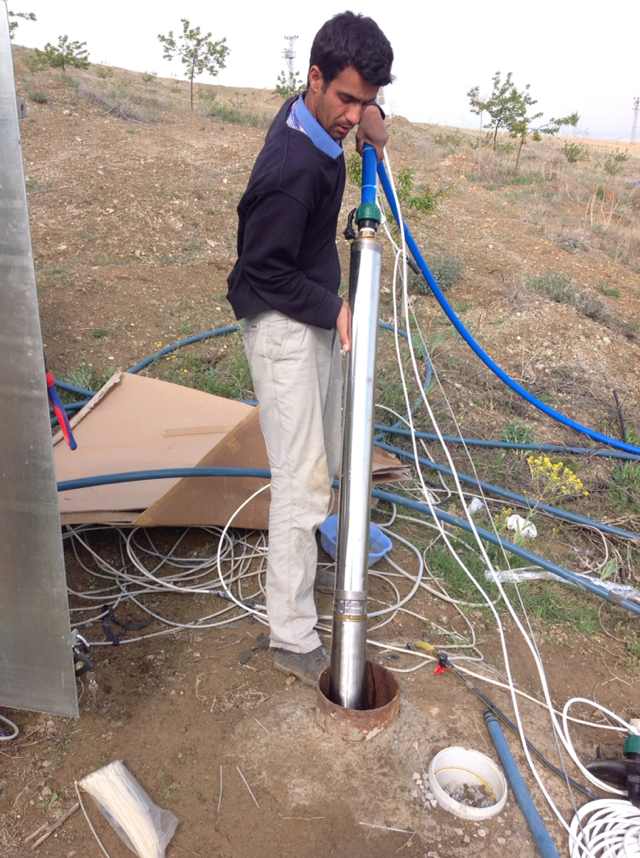
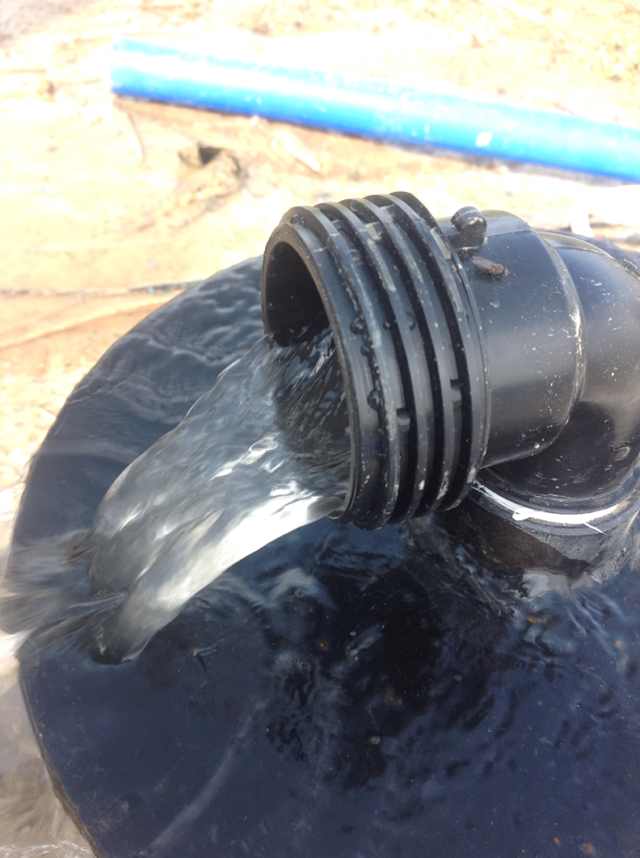
the package:
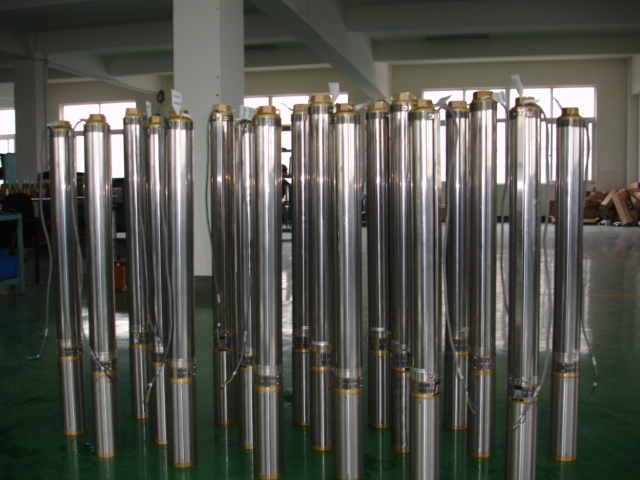
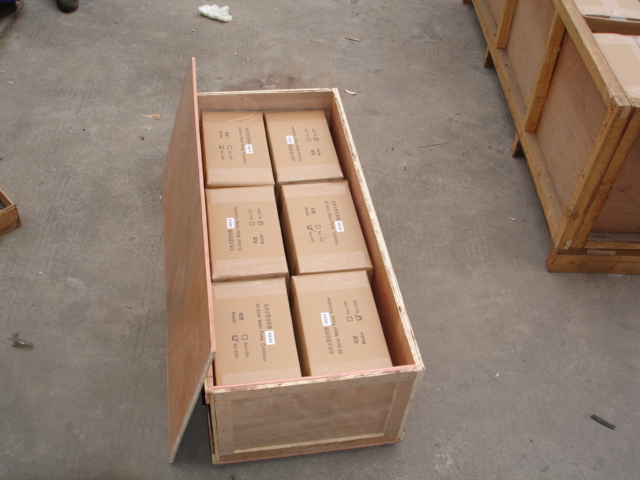
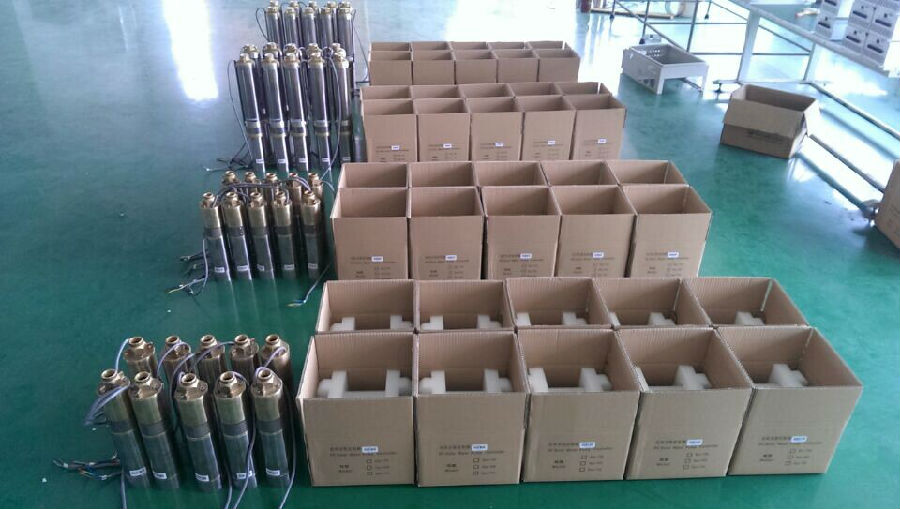
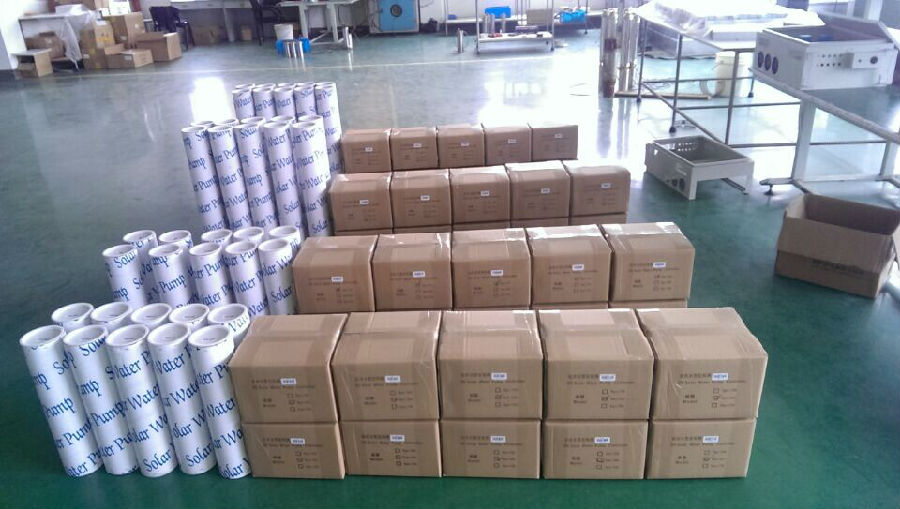

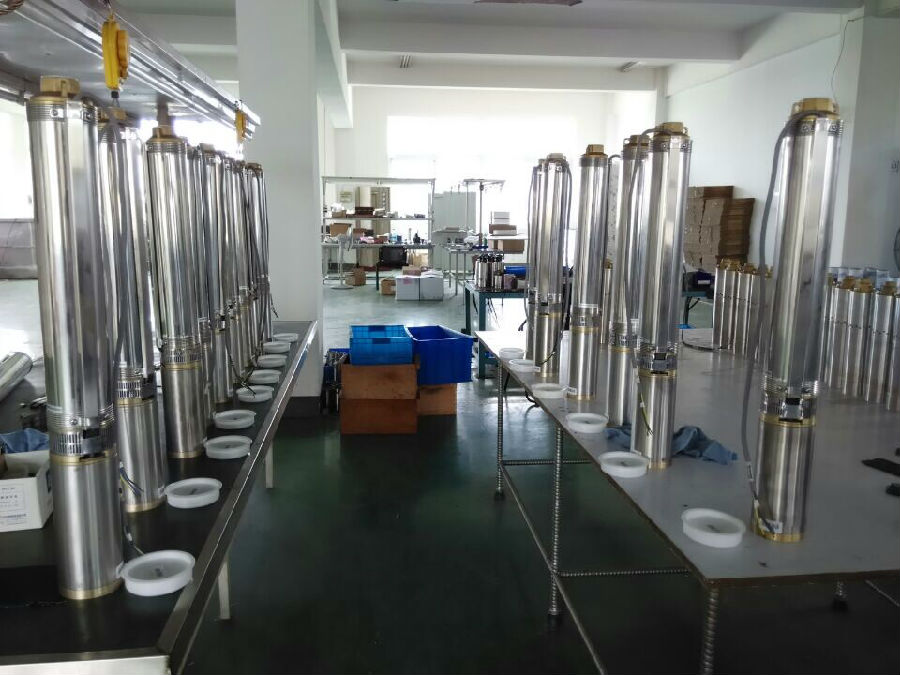
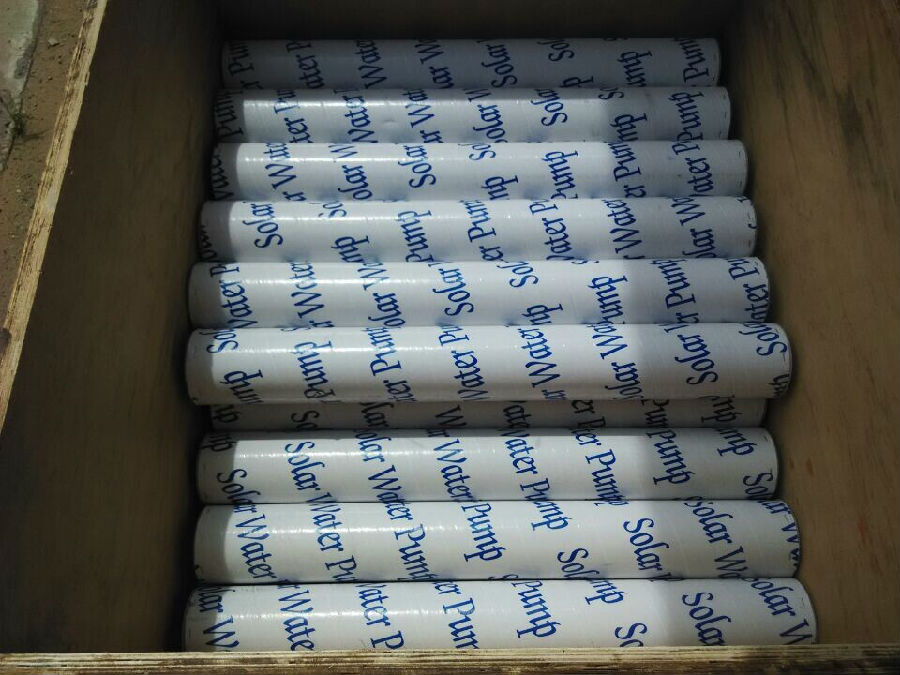
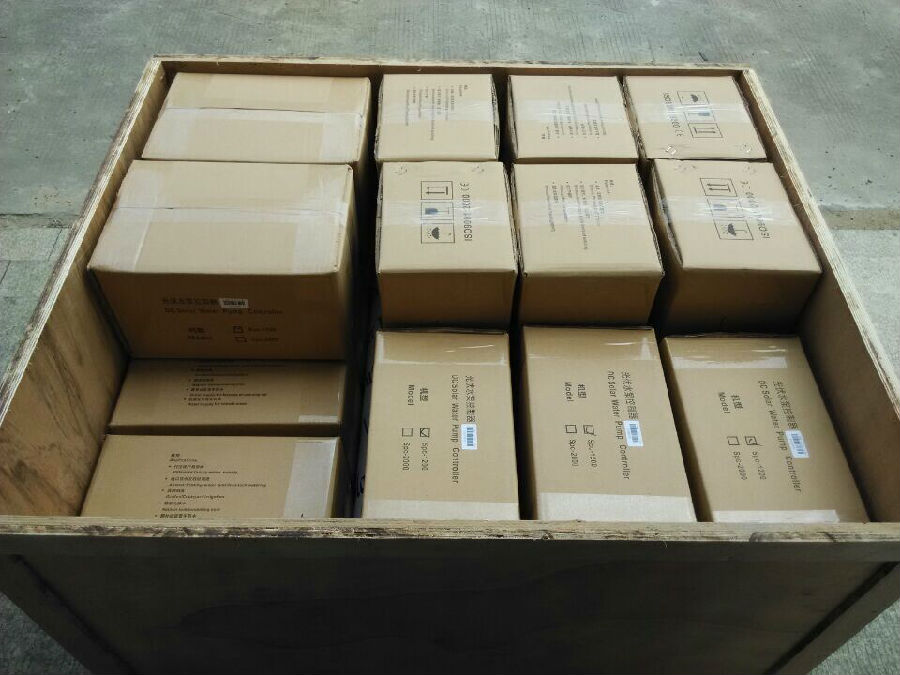
- Q: How does a solar pump handle airlock or priming issues?
- A solar pump typically handles airlock or priming issues by utilizing a self-priming mechanism. This mechanism allows the pump to automatically remove air and prime itself, ensuring a continuous flow of water without any interruptions.
- Q: Can solar pumps be used for water supply in wildlife sanctuaries or zoos?
- Yes, solar pumps can be used for water supply in wildlife sanctuaries or zoos. Solar pumps are an environmentally friendly and cost-effective solution that can provide a reliable water supply for various purposes such as drinking water for animals, irrigation, or maintaining water features within these establishments. The use of solar pumps helps in reducing reliance on fossil fuels and contributes to sustainable operations in wildlife sanctuaries and zoos.
- Q: How does the temperature affect the performance of a solar pump system?
- The temperature affects the performance of a solar pump system in several ways. Firstly, higher temperatures can cause the efficiency of the solar panels to decrease, reducing the amount of energy they can produce. Secondly, elevated temperatures can lead to an increase in the temperature of the water being pumped, which can reduce its density and negatively impact the pump's performance. Lastly, extreme temperatures can also cause the components of the pump system to expand or contract, potentially leading to damage or malfunction. Overall, it is important to consider and manage the temperature conditions to ensure optimal performance of a solar pump system.
- Q: What is the impact of a solar pump on rural development?
- A solar pump has a significant impact on rural development. It provides a reliable and sustainable source of water for irrigation, livestock, and household needs, thereby improving agricultural productivity and food security in rural areas. It reduces the dependence on traditional manual methods of water extraction, which are labor-intensive and time-consuming. Moreover, solar pumps decrease the reliance on fossil fuels or grid electricity, reducing costs and promoting environmental sustainability. The availability of water through solar pumps also enables the development of small-scale industries, such as fish farming and vegetable cultivation, which further contribute to rural economic growth. Overall, solar pumps play a crucial role in enhancing livelihoods, increasing income opportunities, and improving overall living conditions in rural communities.
- Q: Can a solar pump be used for both irrigation and drinking water?
- Yes, a solar pump can be used for both irrigation and drinking water purposes. Solar pumps are versatile and can be used to extract water from various sources such as wells, rivers, or lakes. The water can then be used for irrigation purposes to water crops or for drinking purposes after proper filtration and treatment. Solar pumps provide a sustainable and energy-efficient solution for both agricultural and domestic water needs.
- Q: Can a solar pump be used for waterfalls or decorative fountains?
- Yes, a solar pump can be used for waterfalls or decorative fountains. Solar pumps are designed to operate using solar energy, making them an eco-friendly and cost-effective choice for powering water features. They can provide the necessary flow and pressure to create beautiful waterfalls or maintain the circulation in decorative fountains, all without the need for electricity from the grid.
- Q: Can a solar pump be used in conjunction with a water filtration system?
- Certainly, a water filtration system can be effectively used in conjunction with a solar pump. In fact, this combination is widely embraced as an eco-friendly and practical solution to deliver clean and safe drinking water in remote or off-grid locations. The solar pump is employed to extract water from various sources such as wells or boreholes, and subsequently, the water can be directed towards a water filtration system to undergo purification. The solar pump operates solely on solar energy, which not only promotes sustainability but also guarantees long-term cost-effectiveness. This amalgamation of the solar pump and water filtration system proves particularly advantageous in areas where electricity supply is unreliable or nonexistent. It enables a consistent provision of clean water without relying on conventional electric or fuel-powered pumps. In addition, the utilization of solar energy significantly diminishes carbon emissions and dependence on fossil fuels, rendering it an ideal solution for sustainable water supply.
- Q: Is there any noise generated by a solar pump system?
- Yes, there may be some noise generated by a solar pump system, but it is generally minimal. The noise level depends on the specific design and components of the system. Solar pumps usually use brushless DC motors, which are known to operate quietly. However, some noise may be produced due to the movement of water, vibrations from the pump, or other mechanical parts. Overall, the noise generated by a solar pump system is typically much quieter compared to traditional fuel-powered pumps or electric pumps.
- Q: Can a solar pump be used for water supply in recreational facilities?
- Yes, a solar pump can be used for water supply in recreational facilities. Solar pumps are an excellent alternative to traditional electric or diesel pumps as they harness the power of the sun to generate energy. They are cost-effective, environmentally friendly, and can provide a reliable water supply for various recreational facilities such as swimming pools, water parks, and sports fields. Solar pumps can efficiently draw water from wells, rivers, or other water sources, and deliver it to the desired location. They can be easily installed and require minimal maintenance, making them an ideal choice for water supply in recreational facilities. Additionally, solar pumps can be equipped with storage systems to ensure a constant water supply even during cloudy days or at night. Overall, utilizing solar pumps for water supply in recreational facilities not only reduces operational costs but also demonstrates a commitment towards sustainable and clean energy solutions.
- Q: Can a solar pump be used in cloudy weather?
- Yes, a solar pump can still be used in cloudy weather. While solar pumps are most efficient in direct sunlight, they can still operate and generate power even in cloudy conditions. The solar panels of the pump are designed to capture solar energy from diffused sunlight or even on overcast days. However, it is important to note that the pump's performance may be reduced in cloudy weather due to decreased sunlight intensity. Therefore, the pump might not be able to operate at its maximum capacity, but it can still function and provide some level of water pumping.
Send your message to us
DC Solar Drinking Water Pump with Solar Pump and Controller
- Loading Port:
- Shanghai
- Payment Terms:
- TT OR LC
- Min Order Qty:
- -
- Supply Capability:
- 300 set/month
OKorder Service Pledge
Quality Product, Order Online Tracking, Timely Delivery
OKorder Financial Service
Credit Rating, Credit Services, Credit Purchasing
Similar products
Hot products
Hot Searches
Related keywords
